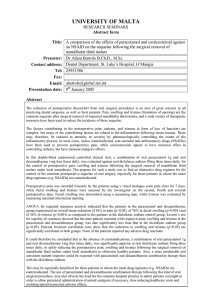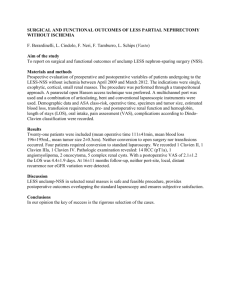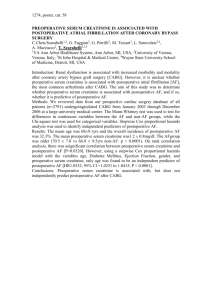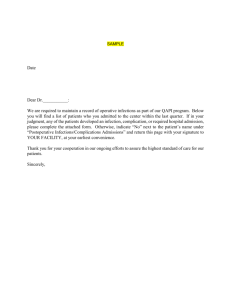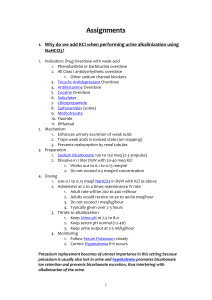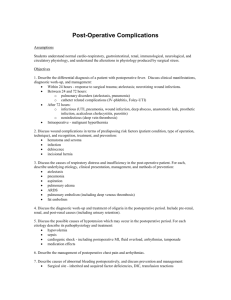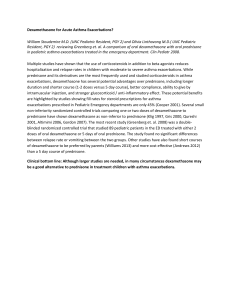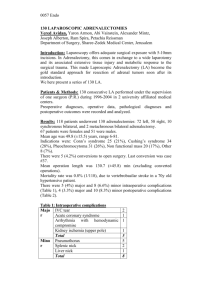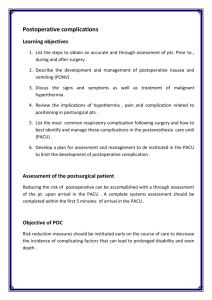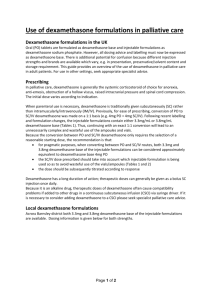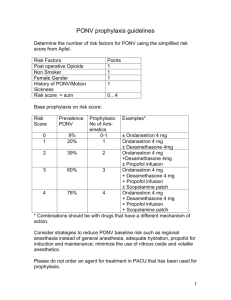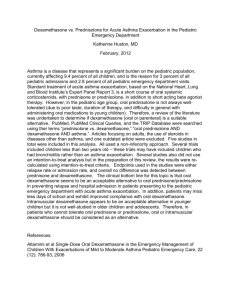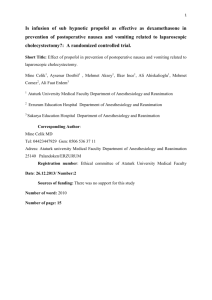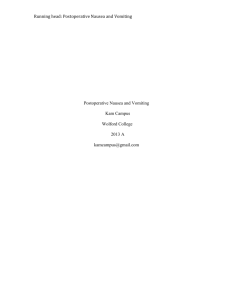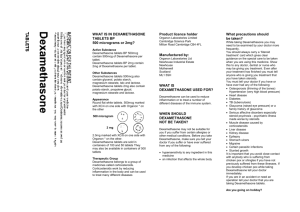Abstract - BioMed Central
advertisement
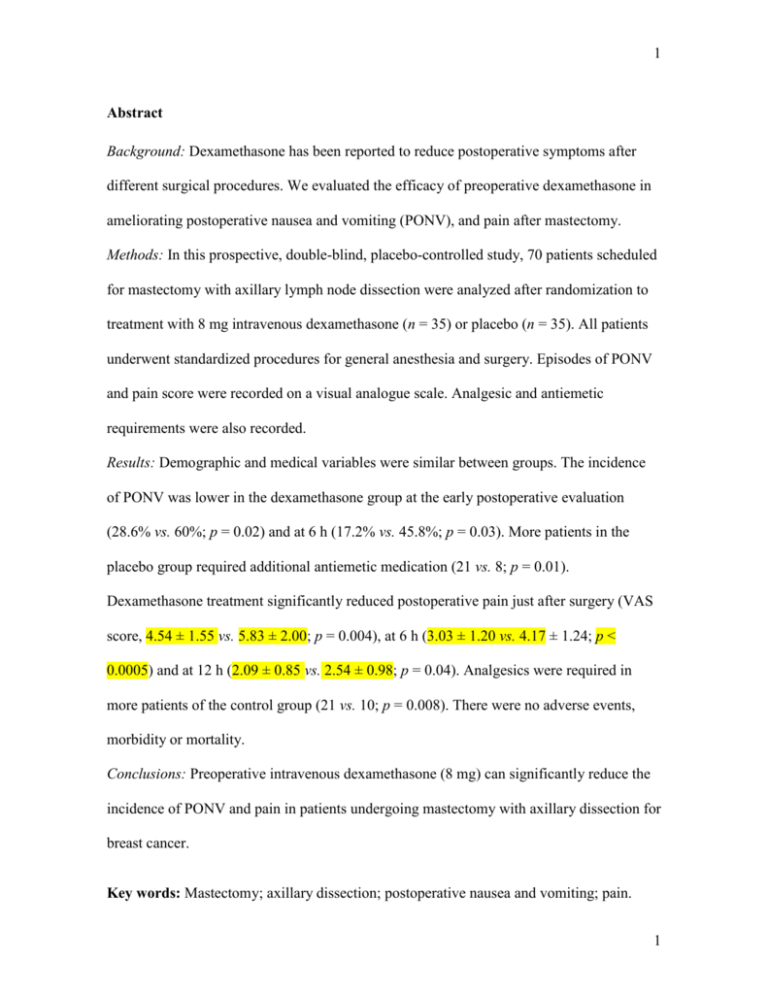
1 Abstract Background: Dexamethasone has been reported to reduce postoperative symptoms after different surgical procedures. We evaluated the efficacy of preoperative dexamethasone in ameliorating postoperative nausea and vomiting (PONV), and pain after mastectomy. Methods: In this prospective, double-blind, placebo-controlled study, 70 patients scheduled for mastectomy with axillary lymph node dissection were analyzed after randomization to treatment with 8 mg intravenous dexamethasone (n = 35) or placebo (n = 35). All patients underwent standardized procedures for general anesthesia and surgery. Episodes of PONV and pain score were recorded on a visual analogue scale. Analgesic and antiemetic requirements were also recorded. Results: Demographic and medical variables were similar between groups. The incidence of PONV was lower in the dexamethasone group at the early postoperative evaluation (28.6% vs. 60%; p = 0.02) and at 6 h (17.2% vs. 45.8%; p = 0.03). More patients in the placebo group required additional antiemetic medication (21 vs. 8; p = 0.01). Dexamethasone treatment significantly reduced postoperative pain just after surgery (VAS score, 4.54 ± 1.55 vs. 5.83 ± 2.00; p = 0.004), at 6 h (3.03 ± 1.20 vs. 4.17 ± 1.24; p < 0.0005) and at 12 h (2.09 ± 0.85 vs. 2.54 ± 0.98; p = 0.04). Analgesics were required in more patients of the control group (21 vs. 10; p = 0.008). There were no adverse events, morbidity or mortality. Conclusions: Preoperative intravenous dexamethasone (8 mg) can significantly reduce the incidence of PONV and pain in patients undergoing mastectomy with axillary dissection for breast cancer. Key words: Mastectomy; axillary dissection; postoperative nausea and vomiting; pain. 1
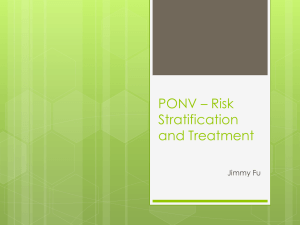
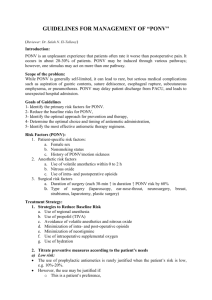
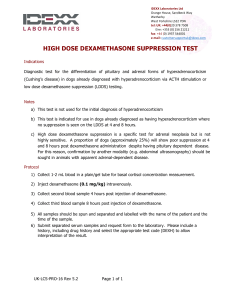
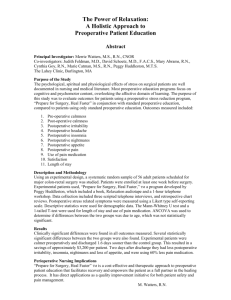
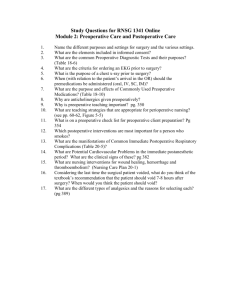
![[Drug Name] Generic Name: Compound Anisodine Hydrobromide](http://s3.studylib.net/store/data/007043112_1-d16b4f2e5f96c851498d41cb4852b648-300x300.png)
